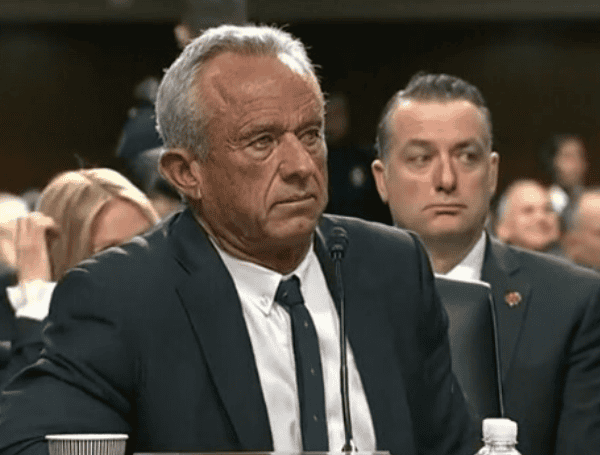The Supreme Court will hear oral arguments Monday in a case that could strike down a key provision of the Affordable Care Act (ACA), potentially forcing millions of Americans to pay out of pocket for essential preventive services, such as cancer screenings, diabetes tests, and HIV prevention medication.
The case, Kennedy v. Braidwood Management, Inc., centers on the constitutionality of the U.S. Preventive Services Task Force (USPSTF), an independent panel of medical experts whose recommendations currently mandate that insurers cover a range of preventive services without co-pays or deductibles under the ACA.
At the heart of the legal challenge is the argument that the task force members, who are appointed by the Secretary of Health and Human Services (HHS), are “principal officers” under the Constitution’s Appointments Clause and therefore require presidential nomination and Senate confirmation. A federal appeals court in New Orleans previously agreed with this argument, finding the task force’s structure unconstitutional.
READ: Pope Francis, First Latin American Pontiff, Dies At 88
Should the Supreme Court affirm the appeals court’s decision, the implications for public health could be significant. Hospitals and patient advocacy groups warn that eliminating no-cost access would deter individuals from seeking crucial preventive care, leading to delayed diagnoses, more complex and costly treatments, and potentially worse health outcomes.
“Patients who relied on the promise of preventive care without out-of-pocket costs for a variety of lifesaving interventions and screenings may now need to bear those costs themselves,” a coalition of trade groups, including the American Hospital Association, stated in a friend-of-the-court brief. They cautioned that this financial burden could lead patients to forgo essential screenings and medications.
The USPSTF, established in 1984 and codified by Congress in 1999, has long played a role in evaluating scientific evidence and making recommendations on preventive care. The ACA, signed into law in 2010, leveraged these recommendations to define the categories of preventive services that health plans must cover without cost-sharing. Both the Biden and Trump administrations have estimated that millions of Americans have benefited from this provision.
READ: Supreme Court To Hear Maryland Parents’ Challenge Over LGBTQ+ Storybook Opt-Outs
The lawsuit originated with a group of individuals and small businesses who objected to covering certain preventive services, specifically citing religious objections to covering HIV-prevention medication (PrEP). They argued that the task force’s recommendations, particularly the inclusion of PrEP, conflicted with their religious beliefs and that they should be able to purchase plans excluding such coverage.
The plaintiffs contend that the USPSTF members wield “unreviewable power” in determining which services insurers must cover, a level of authority they argue requires the more stringent appointment process of principal officers. They also dispute the government’s assertion that the HHS Secretary retains sufficient control over the task force’s recommendations to classify its members as inferior officers.
The government, however, argues that the task force members are indeed inferior officers because the HHS Secretary appoints them, can remove them at will, and has the authority to review their recommendations before they become legally binding under the ACA. They maintain that these controls ensure appropriate supervision by a principal officer. The government also suggests that even if a constitutional violation exists, it could be remedied by severing the provision that the Fifth Circuit found insulated the task force from Secretarial oversight.
READ: Health Secretary RFK Jr. Targets ‘Toxins,’ Including Ultrasound, In Autism ‘Tsunami’
Medical organizations have underscored the public health stakes. The Susan G. Komen Breast Cancer Foundation highlighted the “profound impact” of cost-free breast cancer screenings on early detection and survival rates, warning that reinstating costs would reverse this progress.
Similarly, the HIV and Hepatitis Policy Institute stressed the importance of no-cost preventive measures in controlling infectious diseases.
Groups supporting the plaintiffs, conversely, argue that the task force operates with a lack of political accountability due to its insulation from direct Secretarial control as interpreted by the Fifth Circuit.
A decision from the Supreme Court is anticipated by early July and will have significant implications for the future of preventive healthcare access in the United States.
Please make a small donation to the Tampa Free Press to help sustain independent journalism. Your contribution enables us to continue delivering high-quality, local, and national news coverage.
Connect with us: Follow the Tampa Free Press on Facebook and Twitter for breaking news and updates.
Sign up: Subscribe to our free newsletter for a curated selection of top stories delivered straight to your inbox.

